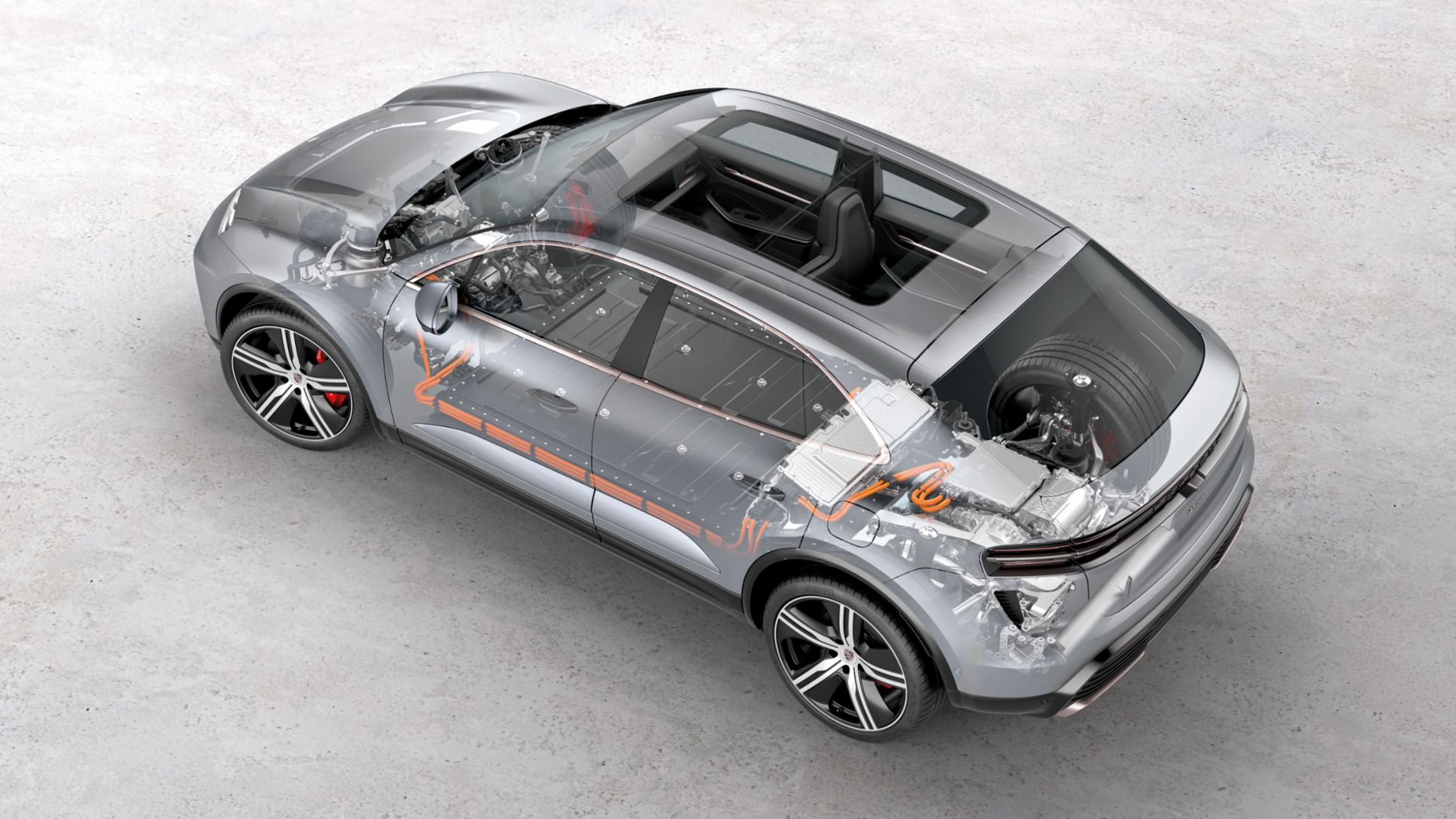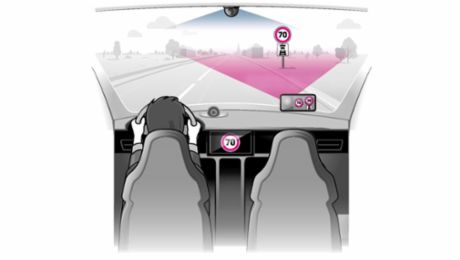The process of charging the new all-electric Macan is best described as a symbiosis of user-friendliness and speed, with an unwavering focus on seamless integration of charging into everyday operation. Like the Taycan, the Macan features permanent synchronous electric motors (PSMs) and 800-volt technology, which not only contributes to high performance, but also aims to optimize charging time. “A higher voltage improves charging performance and reduces loss, while maintaining a lower weight in the vehicle,” explains Tomas Gajdos, Manager of the Energy System Project for the Macan series.
Charging capacity of up to 270 kW
The new Macan is the first Porsche to be developed on the basis of the Premium Platform Electric (PPE) developed in collaboration with Audi. Because the sports car reaches a charging capacity of up to 270 kW. Under optimum conditions,* its battery can therefore be fast-charged from 10 to 80 percent in around 21 minutes.

Bank charging comes into play if the selected station operates with 400-volt technology, with an intelligent software effectively splitting the 800-volt battery into two batteries with the same voltage thanks to built-in high-voltage separators. Both batteries can then be charged at the same time with up to 135 kW at a 400-volt charging station without additional HV booster, making the Macan compatible with charging stations around the world and supporting that it can be used as efficiently as possible by customers. Developed specifically for performance and efficiency, the battery itself contains cells that offer the optimal balance between power density, power content, sustainability, and service life. This is further supported by highly developed thermal management that regulates the temperature of the battery to optimize performance. Circulation therefore provides the necessary cooling when temperatures rise, while in colder months high-voltage components such as the battery can be heated as required by integrating the high-voltage heater.
“As a result, the temperature of the battery always remains within the optimal range, whether the vehicle is on the road or in fast-charging mode,” says Gajdos. The Porsche Charging Planner, a function integrated into the navigation system, can bring the battery to the optimal temperature prior to charging, taking into account a variety of aspects such as route profile, the vehicle’s current level of consumption, and the expected performance of the charging stations.

Intelligent charging process
The charging process has been simplified for the driver with an intuitive operating concept in the cockpit. The new Macan features an intelligent display system that clearly presents information such as charging status, remaining charging time, and the current range. “The new Battery Care Mode aims to optimize the service life of the high-voltage battery,” says Gajdos. “If this function is activated by the driver, the target charge level is set to a battery-friendly 80 percent.” All of that is complemented by the My Porsche app, which allows users to manage and monitor the charging process remotely. With the aid of the app and the time control integrated in the vehicle, charging processes can be programmed to occur at night when electricity prices are lower. The driver can also choose a time when the battery is thermally preconditioned or a time by which the vehicle should be fully charged. One of the most important innovative components is the Porsche Integrated Power Box (IPB), for which Porsche has registered a patent. It combines three components: the onboard AC charger, the high-voltage heater, and the 12-volt DC-to-DC converter. Weighing in at just 19 kilograms, the ultracompact IPB is relatively light and is positioned between the rear seat and the battery below to save space. “This packaging optimizes distribution of the vehicle’s weight,” explains Tomas Gajdos. “And it offers more space in the front of the vehicle for a ‘frunk,’ which is another luggage compartment below the hood at the front.”
A charging port on each side
In addition to these technical features, the Macan also boasts a charging facility that offers a high degree of flexibility both at home and on the road. With a DC fast-charging port on the left and two AC charging ports – one on each side of the car – charging is possible regardless of the parking situation. The hardware itself is designed to be robust and user-friendly. The new Macan therefore combines convenience with fast charging.
* What are optimum charging conditions?
CCS quick-charging station with > 320 kW, > 850 V, battery temperature 23°C, and starting state of charge 9 percent
Info
Text first published in the Porsche magazine Christophorus 410
Author: Manfred Schweigert
Photos: Porsche
Copyright: All images, videos and audio files published in this article are subject to copyright. Reproduction in whole or in part is not permitted without the written consent of Dr. Ing. h.c. F. Porsche AG. Please contact newsroom@porsche.com for further information.


